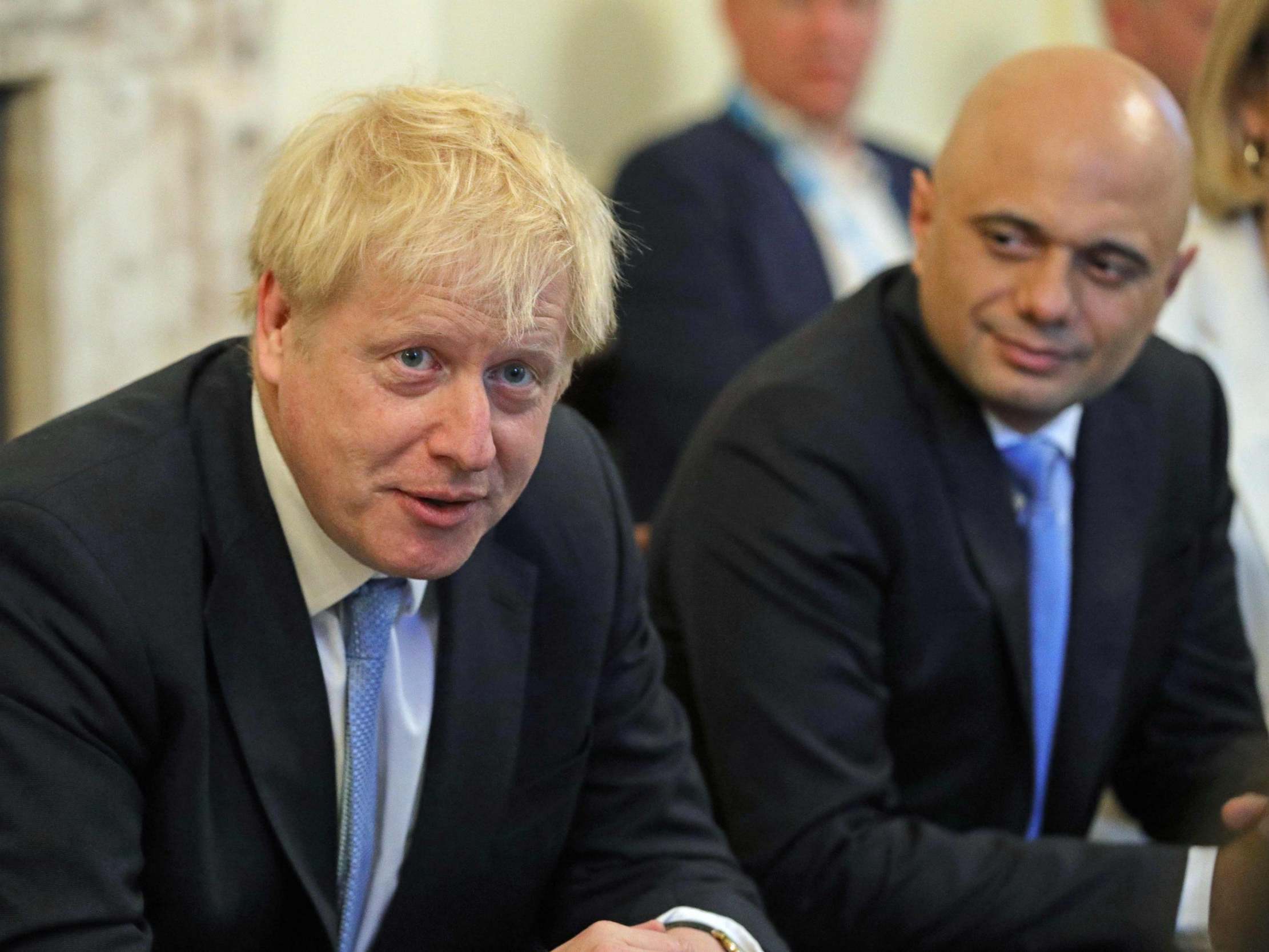Boris Johnson faces bumpy ride with police despite 20,000 pledge
Analysis: Senior officers are wary of the new prime minister's promise, and how much it would help the current threat

Boris Johnson may have hoped to win support with his pledge to recruit 20,000 police officers, but the early signs suggest a bumpy ride ahead for his relationship with the service.
While the announcement makes a catchy headline following years of government cuts to policing and rising crime, the detail remains unclear.
Police leaders have given the pledge a cautious welcome in principle, but questions are mounting over whether the target can be achieved within three years, and what effect the drive will have.
Scepticism abounds over promises made by Mr Johnson, who has hailed his record on crime as mayor of London but saw violence rise and police officer numbers fall on his watch.
Senior figures have already questioned whether there are enough suitable candidates, training instructors and bases to fulfil his pledge, following the loss of 600 police stations and thousands of staff since 2010.
Conservative budget cuts in the same period caused a reduction of almost 22,000 police officers, leaving a gap that Mr Johnson’s ambitious promise will not fill.
It is unclear whether the new recruits will be constables, or be put on controversial direct entry routes to fill national shortages of detectives.
While the public will welcome an increased police presence on the streets, leaders want to ensure they have officers with the experience to properly investigate crimes as well as prevent them.
The civilian staff needed to support police officers and work in vital areas including forensics and contact centres saw even greater cuts to their ranks during years of austerity, but were not mentioned in Mr Johnson’s pledge.
While the number of officers plummeted by 15 per cent from 2010 to 2018, the number of staff dropped by 21 per cent – a reduction of around 16,700 in total.
Mr Johnson’s proposals also fail to acknowledge the dramatically changed character of crime, seeing police struggling to tackle complex fraud, cyber offences and historic child abuse investigations – which the prime minister previously said was money being “spaffed up the wall”.
HM Chief Inspector of Constabulary is among the senior figures calling for the government to consider funding new technology, training and dramatic reforms to tackle the threats of 2019, rather than solely increasing police numbers.
Others have called for investment in mental health, youth and social services to address the root causes of growing demands on police.
Even the Police Federation, the rank-and-file association that has been loudest in calls for a reverse to government cuts, greeted the recruitment pledge with caution.
Chair John Apter has said he will hold Mr Johnson to account for the vow, adding: “The public deserves better, now is the time to turn promising words into positive actions.”
He said there was “still much to be done to regain the trust and confidence of the service” following a combative relationship with Theresa May, who accused the federation of “crying wolf” over the impact of cuts she had implemented in 2015.
Her successor Amber Rudd continued to defend budget reductions as violence rose, but Sajid Javid won over many police officers for admitting that they needed more resources and starting to increase central government funding.
Mr Javid instigated a review of frontline policing, sending the former policing minister Nick Hurd to meet every force in the country in an unprecedented outreach exercise.
Senior officers had a warm relationship with Mr Hurd and were saddened by his departure, just weeks after the review was finally published.
While they are hopeful that Mr Javid’s move to the Treasury will ensure policing benefits from the upcoming government-wide spending review, they are wary of his successor Priti Patel.
The Essex Police Federation claimed the new home secretary – who resigned her previous cabinet post in 2017 over undisclosed meetings with Israeli officials – had blocked its Twitter account “for having the temerity to point out the folly and consequences of drastic cuts to policing”.
Speaking of the incident several years ago, chair Steve Taylor said: “We hope Ms Patel picks up the more constructive relationship we had with her predecessor Mr Javid, and rather than accusing us of scaremongering and crying wolf, listens to police professionals and our feedback, as we strive for a better police service for the public we all serve.”
Join our commenting forum
Join thought-provoking conversations, follow other Independent readers and see their replies
Comments
Bookmark popover
Removed from bookmarks